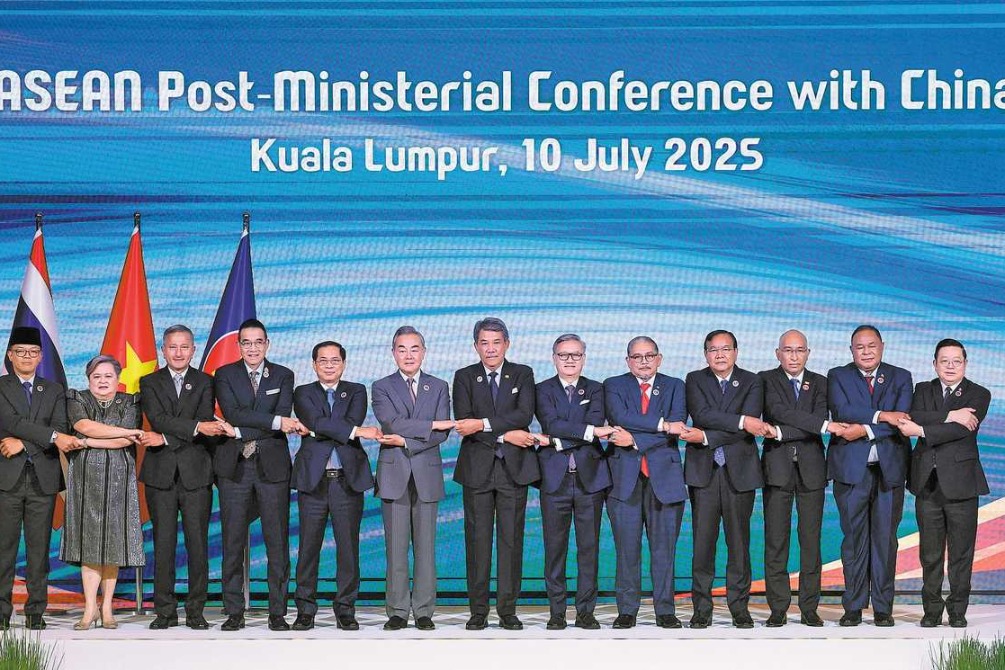Foreign minister criticizes 'flawed' South China Sea ruling

Foreign Minister Wang Yi has strongly condemned the South China Sea arbitration case as a politically motivated scheme that was orchestrated by external forces seeking to destabilize the region for their own benefit.
Speaking at the East Asia Summit Foreign Ministers' Meeting in Kuala Lumpur, Malaysia on Friday, Wang warned that all attempts to stir up trouble and sow discord in the region are doomed to fail.
In 2016, the tribunal based in the Netherlands' administrative capital The Hague handling the South China Sea arbitration case unilaterally initiated by the Philippines issued an ill-founded award, denying China's long-standing historic rights in the South China Sea.
During Friday's meeting, Wang emphasized that the Philippines' unilateral initiation of the arbitration case violated the fundamental principle of consent between parties in dispute settlement.
The move breached both the Declaration on the Conduct of Parties in the South China Sea, which requires direct negotiations between concerned parties, and the Philippines' prior commitments in bilateral agreements with China, he added.
The Philippines' claims essentially concern China's territorial sovereignty over the Nansha Islands and directly involve maritime delimitation, Wang said, while noting that territorial issues fall outside the jurisdiction of the United Nations Convention on the Law of the Sea, or UNCLOS.
He pointed out that China explicitly excluded maritime delimitation from arbitration and other compulsory dispute-settlement procedures in its 2006 declaration under Article 298 of UNCLOS, a position shared by four of the five UN Security Council permanent members, excluding the United States, which has not ratified UNCLOS.
The minister criticized the arbitral tribunal for overstepping its authority, abusing UNCLOS dispute settlement mechanisms, and undermining international maritime rule of law.
It is, Wang said, a case of violating UNCLOS under the banner of UNCLOS.
He highlighted what he said were the tribunal's flawed factual determinations and legal applications, and cited its erroneous classification of Taiping Island, the largest island in the Nansha Islands, which extends to 500,000 square meters, as a "rock", thereby denying any entitlement to exclusive economic zones or continental shelves for Nansha's features.
He said this completely contradicts both geographical facts in the South China Sea and UNCLOS provisions.
The minister noted growing international recognition of what he said is the true nature of the case, and added that China's position upholds the spirit of international rule of law and preserves UNCLOS's seriousness.
Thanks to the joint efforts of China and the Association of Southeast Asian Nations countries, the situation in the South China Sea is stable and the freedom of navigation and overflight is effectively guaranteed, Wang said.
He added that China is accelerating consultations with ASEAN countries to reach an early agreement on the Code of Conduct in the South China Sea, with the aim of establishing a new narrative of peace, cooperation, and friendship in the region.































